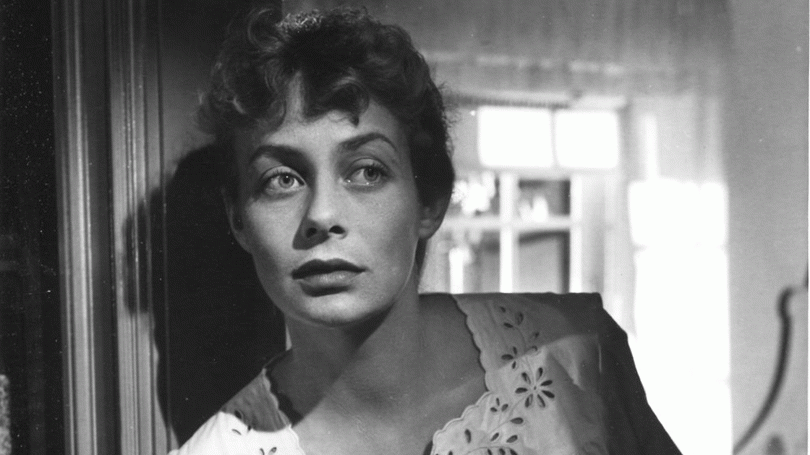Actress, 6 Sept. 1925 – 2 Feb. 2005.
Birgitte Federspiel, daughter of the actor Ejner Federspiel (1896-1981), grew up in Copenhagen, yet she had a strong, life-long connection to Odense. She got her training at Frederiksberg Teaters Elevskole 1943-1945, having studied with the actor John Price and failed the entrance exam to the Royal Theatre School in Copenhagen. After finishing her training, she spent a couple of seasons at Odense Teater before returning to Copenhagen and Folketeateret, where she was engaged from 1947-1962.
Federspiel had her stage breakthrough in 1951, playing Constance Leth in Kaj Munk’s Egelykke. In this period she was Folketeateret’s first choice as leading lady and starred in many roles, including as Portia in The Merchant of Venice. In the early 1960s, Det Ny Teater engaged her for a couple of seasons, after which she freelanced until 1979 when she got a steady engagement at Odense Teater, where she remained until her death. In Odense she played all kinds of parts, ranging from Mrs Alving in Ghosts to parts in modern Nordic dramas by Lars Norén. Even at an advanced age, she was praised for her work, including the Isak Dinesen monologue Lucifer’s Daughter and Love Letters, with William Rosenberg.
Federspiel had a talent for both tragedy and comedy. She often played opposite Angelo Bruun and Bjørn Watt-Boolsen.
She took several year-long hiatuses from acting to dedicate herself to her three children.
Federspiel made her screen debut in 1942 in Arne Weel’s comedy Ta’ briller paa (Put on Your Glasses) and had bit parts in several movies until she got her breakthrough in 1955, playing Inger in The Word, adapted by Dreyer from Kaj Munk’s play and shot in Vedersø, West Jutland.
Though Dreyer offered her the part, she didn’t expect to get it because she had just become pregnant at the time. However, as Inger in the film is pregnant, too, her condition was only an advantage, as Dreyer saw it. Federspiel interprets this brave farmer’s wife with tremendous poetry and empathy. Her fate still grips our hearts today, especially in the final scene where she is awakened from death in a true (cinematic) miracle – or, "passionately kisses herself back to life and her husband," as the Politiken newspaper wrote in her obituary.
Another film highlight for Federspiel came three years later in Johan Jacobsen’s En fremmed banker på (A Stranger came Knocking). She plays Vibeke, a young widow whose husband, a member of the resistance, was tortured and shot during the Occupation. As in The Word she plays opposite Preben Lerdorff Rye, who turns out to be the one who has executed her husband. The film was controversial in its day because of its highly erotic scenes (a female orgasm!), and the censors cut nine seconds from it, reportedly a shot of entwined feet! Federspiel is convincing in her portrayal of a grieving, searching woman who steps into character and moves on in her life.
Federspiel received a Danish Bodil Award for both of these standout performances.
